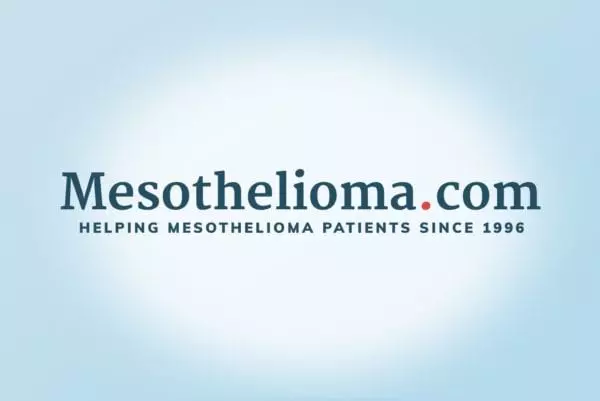Mesothelioma is an aggressive cancer with a poor prognosis for most patients. On average, 9% of mesothelioma patients will survive five or more years following their diagnosis. Because of the disease’s prognosis, mesothelioma treatment often includes addressing the emotional impact of the disease. Patients and their family members may suffer emotionally because of the diagnosis.
Mesothelioma Grief Counseling
Any cancer diagnosis can be scary and overwhelming. It can be even more so when a patient is diagnosed in the late stages of the disease. The news can be devastating and have a serious impact on a patient’s mental health. Often, family members and close friends share this emotional burden and grief.
Patients and their loved ones may experience depression while:
- Going through treatment
- Handling the side effects of medications
- Learning to live with the diagnosis
- Living with the limitations of the disease
Many mesothelioma patients and their family members have found it helpful to talk with a mental health specialist, such as a grief counselor. A specialist can help them understand their grief and learn to cope with it. In many ways, grief counselors can be as important as mesothelioma doctors who address the physical disease within the patient.
The Role of a Grief Counselor for Cancer Patients
Outside of hospice centers, grief counselors can be found in hospitals, cancer centers, nursing homes and private practices.
Many grief counselors work as part of a multidisciplinary team to help cancer patients. There are several areas where grief counseling can benefit patients.
Managing the Emotional Toll of Physical Side Effects
Grief counselors sometimes help with pain management. Some will use traditional psychological interventions, such as hypnosis and relaxation techniques.
Counselors may also provide information about how the body may change during treatment. They may give guidance about when patients should contact a physician.
Often, grief counselors also address the loss of functional capabilities as the illness progresses. Many people lose the ability to complete daily routines and lead what they consider a normal life after a cancer diagnosis. This can cause anxiety and depression in cancer patients.
Family Counseling
Counselors can facilitate or support open communication between patients and their family members. Grief counselors may encourage patients to maintain a social life, despite physical limitations, according to their ability and willingness.
Anticipatory Grief Therapy
Grief counseling can help patients deal with the thought of dying. Counselors may prepare patients for the reality of death by educating them about the dying process.
Studies have shown education about the changes and processes before one’s death may reduce anxiety. Counselors may also be able to debunk misconceptions about dying that patients may have from society and the media.
In addition to grief, many cancer patients experience anger, fear or even guilt. Grief counselors can help a person redefine life in many ways, including:
- Addressing a patient’s feelings of being a burden
- Encouraging the search for meaning in a patient’s daily tasks
- Supporting a patient as they struggle to keep up with life changes caused by their cancer diagnosis
Other ways in which grief counselors can help their patients include:
- Handling end-of-life administrative tasks, such as settling financial affairs, distribution of property, care of body and developing funeral plans
- Focusing on what patients want and can still achieve in the time they have left (i.e., bucket list), such as spending more time with loved ones, reconciling with certain friends and family, visiting close areas of interest
- Connecting patients with other cancer patients or survivors who have undergone, or are undergoing, similar situations
The Role of Grief Counselors for Family Members
Grief counseling can be just as important for family members as it is for cancer patients. Family members of those diagnosed with cancer are at an increased risk for depression and anxiety – especially those who are acting as a caregiver.
Coping With a Dying Family Member
Before a loved one passes away from cancer, a grief counselor can educate family members about end-of-life care. This may include changes to a patient’s body and the processes leading up to death.
Counselors can also help family members cope with anticipatory grief over losing someone to cancer. Grief counselors may support family members as they process their emotions and feelings around the mesothelioma diagnosis.
Coping With the Death of a Loved One
After losing a loved one to cancer, family members will often need help assimilating into their new lives. It can be a difficult adjustment for some individuals.
Family members often handle the immediate needs following a death. This may include funeral arrangements and executing the deceased individual’s estate. However, a loved one’s death can also result in long-term tasks. Surviving family members may now have to maintain inherited property (home, car, etc.). Family members may also need work to support family members in the absence of their loved one.
Ultimately, grief counselors can help family members through the unavoidable grieving process. They will listen and offer emotional support. Counselors will also share ways for surviving family members to accept their loss and ease back into normalcy.
Incorporating Grief Counseling Into Cancer Treatment
Grief counseling is vital for patients who have been diagnosed with cancer. It can be especially helpful for those with a poor prognosis, such as mesothelioma. It should be an integrative part of treatment for the patient and their family members.
Grief counseling can help patients and family members learn to accept the diagnosis. Counselors can offer emotional support and encouragement, provide education about what to expect and help plan for end-of-life care. Additionally, grief counselors can support surviving loved ones after losing a family member to cancer.
Talk with your doctor about grief counseling and the benefits it may offer you and your loved ones.




